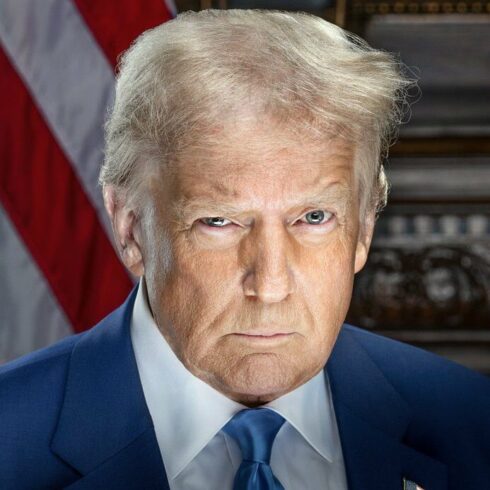U.S. President Donald Trump has launched a scathing attack on major media outlets, claiming they function as “political arms of the Democratic Party.” He alleged that their overwhelmingly negative coverage of him and his policies is not just biased but a deliberate effort to manipulate public opinion and interfere in elections.
Donald Trump, who has long been at odds with mainstream news networks, escalated his rhetoric by calling their actions “illegal” and “corrupt.” He argued that certain media organizations have abandoned journalistic integrity, acting as propaganda machines to shield Democrats from scrutiny while unfairly targeting Republicans.
Donald Trump Labels Media Influence a Threat to Democracy
Donald Trump has warned that the alleged media bias poses a direct threat to American democracy, accusing major networks of suppressing dissenting voices and distorting facts to shape political narratives. He stated that fair and balanced journalism is essential for a functioning republic, but mainstream outlets have chosen to prioritize political agendas over truthful reporting.
He pointed to instances where media organizations allegedly downplayed scandals involving Democratic figures while aggressively amplifying controversies surrounding him. Trump insists that this selective coverage is not just unethical but constitutes election interference, making it an issue of national concern.
Trump Calls for Legal Action Against ‘Corrupt’ News Networks
Donald Trump has called for legal scrutiny into what he describes as widespread corruption within the media industry. He suggested that some news outlets are in violation of federal election laws by operating as unregistered political entities, actively promoting Democratic candidates while vilifying Republicans.
He urged lawmakers and legal experts to investigate whether media organizations should be held accountable under campaign finance laws. According to Trump, when news outlets act as political operatives rather than independent journalists, they should be subject to the same transparency regulations imposed on political organizations.
Media Defends Its Independence, Rejects Donald Trump’s Claims
Major news organizations have pushed back against Trump’s accusations, defending their editorial decisions as grounded in factual reporting. They argue that their critical coverage of Trump stems from his actions, policies, and statements, not political bias.
Journalistic watchdogs and media rights groups have condemned Trump’s remarks as an attack on press freedom, warning that such rhetoric endangers reporters and fosters distrust in independent journalism. Some analysts suggest that Trump’s continued vilification of the press is a strategic move to discredit negative coverage as he prepares for the 2024 election.
Political Fallout: Republicans Rally Behind Trump, Democrats Dismiss Allegations
Donald Trump’s comments have ignited a political firestorm, with his Republican allies echoing concerns about media bias. Conservative lawmakers and commentators argue that mainstream news networks have long functioned as unofficial Democratic allies, shaping narratives that undermine Republican candidates.
Democrats, however, have dismissed Trump’s allegations as baseless conspiracy theories designed to deflect from his legal troubles and controversial statements. They argue that Trump’s attacks on the media are part of a broader strategy to delegitimize any institution that holds him accountable.
Trump Doubles Down, Vows to ‘Expose’ Media Corruption
Trump has vowed to intensify his efforts to expose what he calls the “dishonest and dangerous” practices of mainstream media. He claims that alternative media platforms and social media will play a crucial role in countering misinformation and ensuring that the American people receive unfiltered news.
As Trump remains a dominant force in U.S. politics, his battle with the press is unlikely to subside. Whether his calls for legal action gain traction or remain political rhetoric, his relentless criticism of the media continues to fuel divisions and shape the narrative heading into the next election cycle.














